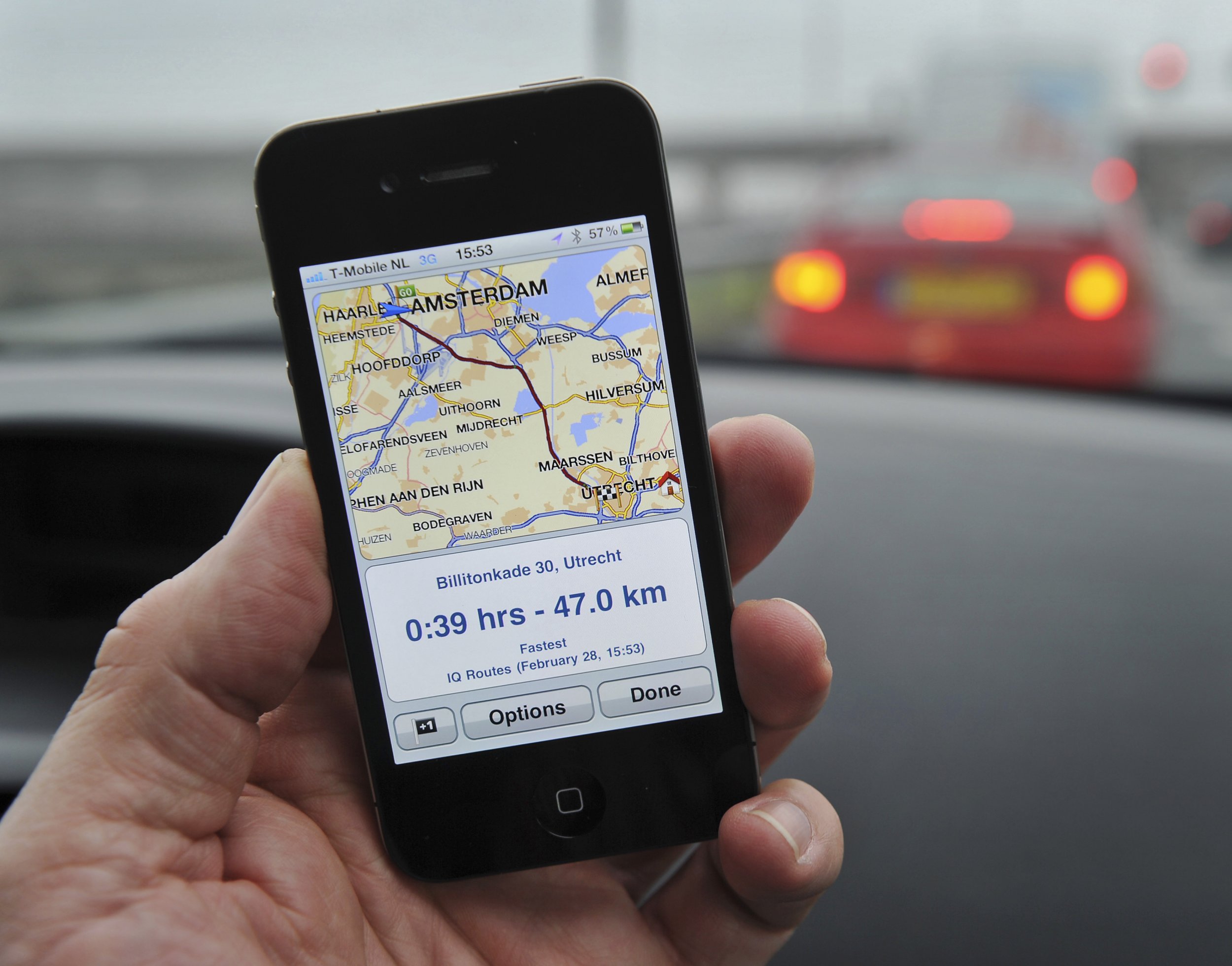
Using a hands-free phone while driving is just as distracting as holding the device itself, according to a study.
Researchers at the University of Sussex, England, said having a phone conversation, even on a hands-free devices, sparks a person's visual imagination, creating "competition for the brain's processing capacity, which results in drivers missing road hazards that they might otherwise have spotted."
They have called for a blanket ban on phone use while driving.
At present, it is illegal for drivers in the U.K. to use hand-held mobile phones when behind the wheel; those who do face an automatic fixed penalty notice, three penalty points on their license and a £100 ($146) fine. However, it is legal for drivers to use hands-free phones.
The study involved 40 women and 20 men who took part in video tests while sitting in a car behind the steering wheel. One group drove completely undistracted, while the other was asked questions such as, "Where did you leave the blue file?" from a loudspeaker 90 centimeters away. Those listening to the questions took just under a second longer to respond to hazards on the road, such as a pedestrians crossing the road.
"A popular misconception is that using a mobile phone while driving is safe as long as the driver uses a hands-free phone," said Dr. Graham Hole, a senior lecturer in psychology at University of Sussex. "Our research shows this is not the case.
"Hands-free can be equally distracting because conversations cause the driver to visually imagine what they're talking about. This visual imagery competes for processing resources with what the driver sees in front of them on the road.
"Our findings have implications for real-life mobile phone conversations. The person at the other end of the phone might ask 'Where did you leave the blue file?' causing the driver to mentally search a remembered room. The driver may also simply imagine the facial expression of the person they're talking to."
The U.K. Department for Transport (DfT) said that there are no plans at present to amend the existing Highway Code to make hands-free devices on the road illegal, but that stiffer penalties for hand-held mobile phone use at the wheel is under consideration.
"We have some of the safest roads in Europe, but we are always looking for ways to improve that record," a Department for Transport spokesperson said in a statement to Newsweek. "The Highway Code makes clear that using hands-free equipment is also likely to be distracting and drivers should stop and find a safe place before using their mobile. We encourage motorists to follow this advice for their own safety and others.
"We take safety very seriously and have been consulting on stiffer penalties for using a mobile phone at the wheel. The message is clear—keep your eyes on the road, not on your phone, or you could end up being banned or causing a collision."
But Dr Hole believes that more needs to be done to ban all phone use at the wheel: "On balance, I think the law should be changed to get the right message across and make it absolutely clear that any use of a mobile phone while driving is hazardous," he told the BBC.
Lucy Amos, research adviser for road safety charity Brake, agrees that legislation is necessary to reduce accidents on the road. She said: "Distracted driving is a major cause behind road crashes; pulling the drivers' attention away from the road and its potential hazards, potentially leading to fatal outcomes. This new study is only the latest of many which adds weight to extending the existing legislation to cover all mobile phone use within a vehicle, not just the use of hand-held mobile devices. We call on the government to take action and remove the clear and present danger of mobile phones on our roads."
Uncommon Knowledge
Newsweek is committed to challenging conventional wisdom and finding connections in the search for common ground.
Newsweek is committed to challenging conventional wisdom and finding connections in the search for common ground.
About the writer
To read how Newsweek uses AI as a newsroom tool, Click here.








